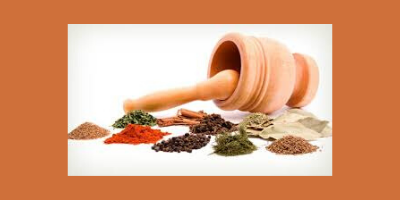Mint, scientifically known as ‘mentha’ is a herb that has been used since long for its different health benefits.
It is an indispensable element of most of the Indian cuisines and also Thai platter. The modest mint leaves can be used in a variety of things like one can crush them and add in tea, one can use it in salads etc.
Mint is an essential ingredient in many Indian and Middle Eastern cuisine and is popularly mixed with natural plain yogurt to make a ‘raita’ or brewed with tea to make the famous Indian ‘Pudina Chai’. In Thai cooking, it is added to soups and to some highly-spiced curries. Mint grown in Asia is much more strongly flavored than most European mints, with a sweet, cool aftertaste.
Mint as Minta Spacata is a plant that has been long used in diverse cultures, such as India, Middle East and Europe. Mint has a sweet flavour, with a cooling after-sensation. Both, fresh and dried mint are used in preparing a large number of recipes, including curries, soups, chutneys, salads, juices, and ice creams.
Mint or pudina is an herb that is synonymous to freshness. Use it for seasoning your salad, adding it to your cup of tea or grind it finely to cook ‘pudina ki chutney’, mint can bring that extra zing and unique flavour to almost any thing you cook, making you salivate every single time. But apart from its dressing and seasoning value for various recipes you cook, you should also know the numerous health benefits it offers.
Health Benefits of Mint Leaves
The health benefits of mint include the following:
Digestion: Mint is a great appetizer or palate cleanser, and it promotes digestion. It also soothes stomachs in cases of indigestion or inflammation. When you feel sick to your stomach, drinking a cup of mint tea can give you relief. Also, if you are someone who travels long distances via plane or boat, the menthol oil derived from mint can be very soothing for nausea and related motion sickness.
The aroma of mint activates the salivary glands in our mouth as well as glands which secrete digestive enzymes, thereby facilitating digestion. These attributes are why mint is extensively used in the culinary arts. Much of the western world includes mint as a part of appetizers or as an element of palate cleansers, to be eaten before the main course so the food will digest comfortably.
Nausea & Headache: Again, the strong and refreshing aroma of mint is a quick and effective remedy for nausea. Even just the smell of mint oil or freshly crushed mint leaves or the use of any product with mint flavor, and your stomach issues will be alleviated. In fact, many people keep menthol oil or mint-flavored products with them at all time to avoid nausea. Balms with a mint base or basic mint oil, when rubbed on the forehead and nose, gives quick relief in case of headache. Mint is a naturally soothing substance, so it can alleviate the inflammation and temperature rise that is often associated with headaches and migraines.
Respiratory Disorders and Coughs: The strong aroma of mint is very effective in clearing up congestion of the nose, throat, bronchi and lungs, which gives relief for respiratory disorders that often result from asthma and the common cold. As mint cools and soothes the throat, nose and other respiratory channels, it relieves the irritation which causes chronic coughing. This is the main reason why so many balms are based on mint. Unlike the inhalers that are based on aerosols, those with mint as the fundamental component tend to be more effective and eco-friendly as well.
Asthma: Regular use of mint is very beneficial for asthma patients, as it is a good relaxant and relieves congestion. That being said, using too much mint in this way can also irritate the nose and throat.
Breast Feeding: For many women, breastfeeding is a beautiful part of raising a child, but it can seriously damage your breasts and nipples. Studies have shown that mint oil can reduce the nipple cracks and nipple pain that so often accompany breastfeeding.
Depression and Fatigue: Mint is a natural stimulant, and the smell alone can be enough to charge your batteries and get your brain functioning on a high level again. If you are feeling sluggish, anxious, depressed, or simply exhausted, mint and its derivative essential oils can help. It can be ingested, applied topically in a salve form, or inhaled as a vapor, and all of those techniques can give you a much-needed boost! A popular way to get good results in an easy manner is to put a few drops of mint essential oil or menthol oil on your pillow at night and let it work on your body and mind while you sleep.
How to Select and Store
Whenever possible, choose fresh mint over the dried form of the herb since it is superior in flavor. The leaves of fresh mint should look vibrant and be a rich green color. They should be free from dark spots or yellowing.
Even through dried herbs and spices like mint are widely available in supermarkets, you may want to explore the local spice stores in your area. Oftentimes, these stores feature an expansive selection of dried herbs and spices that are of superior quality and freshness compared to those offered in regular markets. Just like with other dried herbs, when purchasing dried mint try to select organically grown mint since this will give you more assurance that it has not been irradiated.
To store fresh mint leaves, carefully wrap them in a damp paper towel and place inside of a loosely closed plastic bag. Store in the refrigerator, where it should keep fresh for several days. Dried mint should be kept in a tightly sealed glass container in a cool, dark and dry place, where it will keep fresh for about nine to twelve months





0 Comments